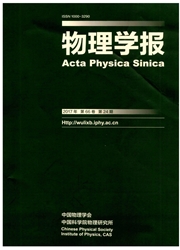

 中文摘要:
中文摘要:
针对飞行器姿态估计以及三轴磁强计在线校正问题,提出了一种实时滚动时域估计算法.首先,为了解决在卡尔曼滤波框架下系统约束不能显式求解的问题,设计了滚动时域估计滤波算法.该算法将飞行器姿态估计问题转化为优化问题,显式求解四元数归一化性质,缩小搜索空间的同时提高了搜索效率和精度.其次,滤波时域窗内应用高斯-牛顿迭代法求解最优状态估计值,满足了实时性要求.最后,在没有增加系统状态维数的情况下,在线求解了三轴磁强计校正参数,保证了磁强计量测值以矢量形式输入系统.仿真结果表明,由于合理地利用了历史信息,该方法精度较高,且对初始误差、系统误差均不敏感,具有一定鲁棒性.
 英文摘要:
英文摘要:
According to the attitude estimation and three-axis magnetometer on-line calibration, a real time moving horizon estimation algorithm is presented in this paper. First, moving horizon estimation filter is designed since system constraints existing in most practical cases cannot be solved analytically in the framework of Kalman filter. Taking advantage of the optimal problem in dealing with constraints, the presented method converts the attitude estimation problem into an optimal one by which the quaternion normalization property can be solved analytically in smaller searching space with better efficiency and accuracy. Second, through a series of linearization of system equations, Gauss-Newton iterative method is applied in the horizon window composed of finite history information to obtain the best state estimation and meet the real time requirement at the same time. Once the newest best state estimation value is obtained, it will be sacked into the horizon window and the oldest one discarded. By this way, the filter is moving forward. Finally,based on the proposed method, the three-axis magnetometer parameter on-line calibration combined with attitude estimation is solved without adding any system state dimension, which can also make sure that the measurements with three-axis magnetometer are in the form of vector as its obvious benefits in the sense of ensuring information quantity. On considering the extreme environment such as great temperature gradient, mechanical pressure and complex electromagnetic fields, different from that of the off-line calibration, the calibration parameter is changed definitely. So the on-line calibration is necessary though neglected by most papers. Simulation results show that under the condition of small initial errors, the difference of accuracy among EKF, UKF and moving horizon estimation is small. But the computational burden of the last one is relatively large. The advantage of the described method is not so obvious in this case. But when the initial errors are large, the mov
 同期刊论文项目
同期刊论文项目
 同项目期刊论文
同项目期刊论文
 期刊信息
期刊信息
